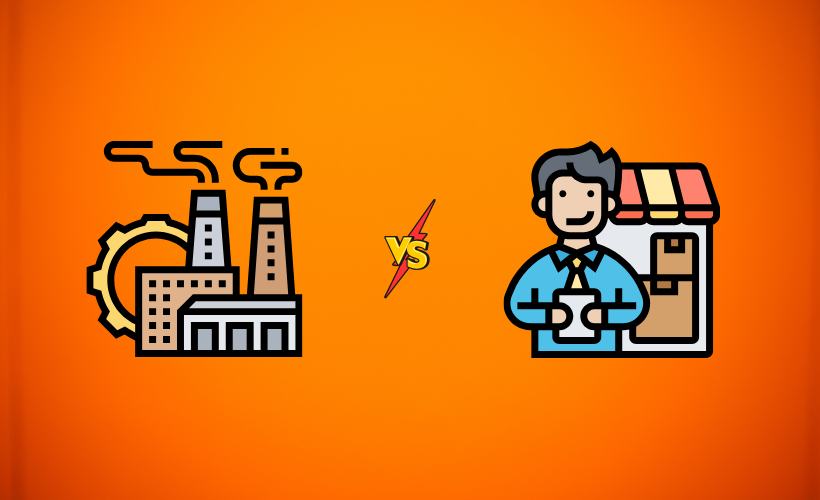![Manufacturer vs Wholesaler: What are The Differences [2026]](https://shopalian.com/wp-content/uploads/2025/05/Manufacturer-vs-Wholesaler.webp)
Manufacturer vs Wholesaler: What are The Differences [2026]
If you’re running a retail business, here is the simple truth: a manufacturer makes the product, and a wholesaler sells it to you (retailer) in bulk.
Most of the retailers like you rely on wholesalers to stock up quickly. Only a small percentage go directly to manufacturers because of high order requirements.
In my opinion, you can consider a 65/35 ratio.
Around 65% of retailers buy their products from wholesalers, while the remaining 35% source directly from manufacturers, depending on their scale, budget, and branding goals.
In this guide, I will walk you through both manufacturer vs wholesaler clearly. You will understand how they work and how to choose the best one for your shop.
Let’s break it down:
👉 Manufacturers = product makers
👉 Wholesalers = product resellers
👉 Retailer = Product Seller
What are The Differences Between Manufacturer vs Wholesaler

| Feature | Manufacturer | Wholesaler |
|---|---|---|
| Main Role | Produces products from raw materials | Buys finished products and resells them in bulk |
| Sells To | Wholesalers, large retailers, or brand owners | Retailers, small businesses, and sometimes consumers |
| Minimum Order Quantity (MOQ) | High (usually 500–1,000+ units) | Lower (as low as 10–100 units) |
| Pricing | Lower cost per unit (direct source) | Slightly higher prices due to middle margin |
| Customization Options | Yes – private labeling, packaging, material, etc. | Usually no customization; products are pre-made |
| Lead Time | Longer (2–8 weeks depending on production cycle) | Shorter (products are often in stock and ready to ship) |
| Brand Control | Full control over your own brand and product design | Limited control; you sell someone else’s product |
| Risk Level | Higher (bulk investment, longer wait, more complex logistics) | Lower (small quantities, less risk if product doesn’t sell) |
| Logistics | Requires shipping coordination, customs, and production tracking | Often local or faster shipping with simpler logistics |
| Best For | Building your own product line or brand | Quick restocks, testing new products, seasonal inventory |
| Example in Baby Business | You design custom baby onesies and order from a factory overseas | You buy trendy baby items from a domestic B2B wholesaler |
| Initial Investment Needed | High (bulk orders, custom production) | Lower (buy as needed) |


![32 Types of Retail Stores – The Ultimate Blog [2026]](https://shopalian.com/wp-content/uploads/2024/09/Types-of-Retail-Stores-360x240.webp)
![24 Types of Retail Marketing & Strategies with Examples [2026]](https://shopalian.com/wp-content/uploads/2024/10/Types-of-Retail-Marketing-360x240.webp)
![22 Types of Customers & How to Make Them Happy [2026]](https://shopalian.com/wp-content/uploads/2024/09/Different-Types-of-Customers-360x240.webp)
